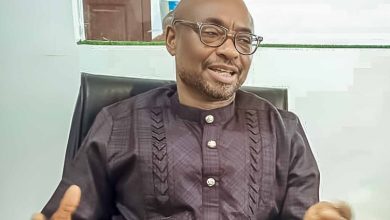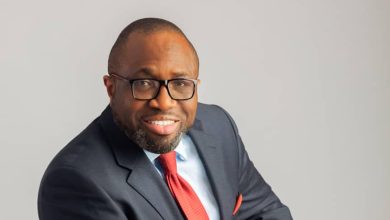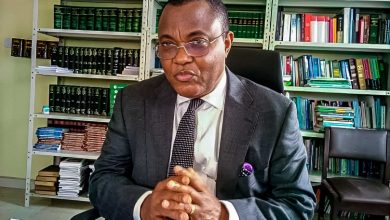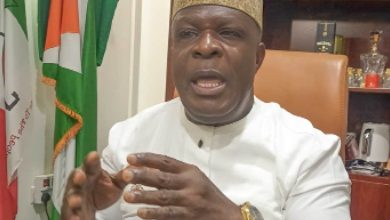Uyo Has No Reason Being Flooded – Engr. Akan Udi
… Local Govt Autonomy Good For Grassroots Development
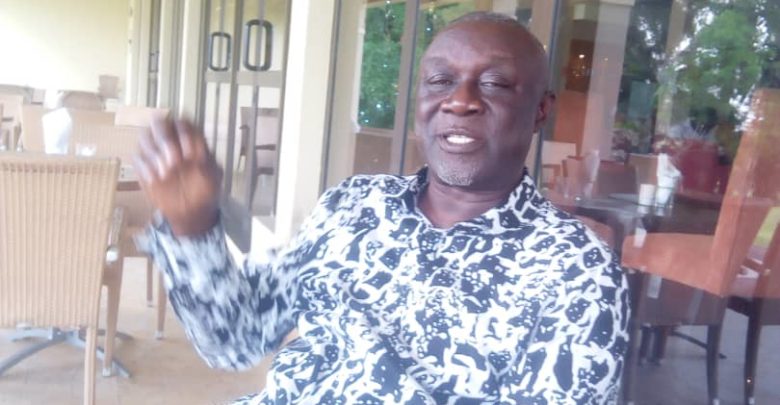
Engineer Akan Udi is a renowned engineering consultant who served as Akwa Ibom State Commissioner for Works, Housing and Transport during the regime of Col. Yakubu Bako as Military Administrator of the State.
Engr Udi was later served in the Ministry of Industry, Commerce and Tourism before returning to his private practice as a consulting engineer.
A pastor with Insight Bible Church, the former commissioner speaks on the experiences of his era and also some of the trending issues in our polity now. Excerpts:
Let us meet
My name is Akan Udi. I am a trained engineer and a citizen of Akwa Ibom State. I have always been a consultant in my field but by January 1994, I was ‘conscripted’ by the then military administrator of Akwa Ibom State, Col. Yakubu Bako to return home and serve as Commissioner for Works, Transport and Housing. In 1996, I was moved to the Ministry of Industry, Commerce and Tourism. That was the much I served government before returning to my practice as a consulting engineer. I have a passion for music and for developing people. During the administration of Obong Victor Attah, he advised me to stay around and advise his government on some projects but not through formal appointment. I was ordained in Winners Chapel as a pastor but presently I am an assistant pastor at Insight Bible Church.
You served under a military regime as Works Commissioner. Can you compare the development in infrastructure witnessed in that era and what we have now under democracy?
You have to understand that the times differ in all ramifications. One, the kind of money we have now is nothing compared to that era. I never like to appraise any administration holistically. Appraising the success and failure of any government depends on what government came to do. For instance, President Buhari said he came to fight corruption and nothing more. So if you want to appraise him, you do so on the scale of what he promised to fight which is corruption. In our time, when Bako sent for me and I arrived, he made it clear that Akwa Ibom is my State and that he is here as the final authority even though I will be the person to decides what comes to his table for approval. He told me as a professional engineer, a young man with passion, energy and zeal for the development of Akwa Ibom State that I should give my best but we were constrained. The state budget as at that time was about N2.5billion in a year and about 80 or 90 per cent of the funds goes to wage bills. Akwa Ibom at the creation of the state pulled the civil service out of old Cross River State. It is worthy to say that Akwa Ibom people formed the bulk of the civil servants in the old Cross River State and it took government time and resources to settle the various ministries and parastatals of government to function optimally. So a lot of government money was going into servicing the system with very little left for capital project.
Unfortunately in Nigeria, we assess government performance based on roads, water supply, electricity and other things that we see physically. I think it is not a correct way to appraise government. I believe government should be more focused on human capacity building and empowerment. It is sad that even in the present democratic era, you see able bodied young men with higher institutions’ certificates hanging around the gates of some politicians for peanuts.
That is not what we should allow in this era. In Akwa Ibom, we want to see a state where human capacity development is enormously increased to the point that other physical development compliments it naturally. After our regime, and others, came the administration of Obong Victor Attah, who was a good administrator with focus and passion for excellence. He knows that for you to achieve a good legacy in development, you must lay a solid foundation and put up some necessary structures that will support development and create job opportunities for the youths. Attah created the master plan for the development of the state. I understand what Attah was trying to do then. All he did was fundamental. He also touched the human capacity development of the people but it was difficult to change the conceptual view of a people in just eight years. The way we are running politics in the country is actually not good. When people are put into office for a term of four years, their desire for a second term makes the first term a waste and sometimes the eight years will pass without any achievements. Sometimes you find out he has not completed any of the project he initiated and the next person comes in and starts afresh the same routine.
If we have properly planned succession in which governors or presidents follow the various developmental plans of the predecessors, the state and country will grow faster. Unfortunately it is not happening. Rather everybody is following same terrain and before you know it, they have also finished their own eight years without tangible achievements. It took Malaysia 30 years to re-establish national consciousness and for people to know the direction to go. Therefore, it will take the grace for God to give us government that will plan for 20 years ahead.
In a nutshell, it will be difficult to judge the various administrations after us because I don’t know the concept that they came with. A government can only successfully be judged if they publicly declare their policy thrust. However I have seen a little bit of continuity between Akpabio’s administration and what Udom Emmanuel’s government is doing. Emmanuel’s administration focuses on industrialization and road infrastructure. But the question now is: what kind of industry should we focus on developing? I think the focus is on one that will engage the people of Akwa Ibom State in positive growth not necessarily what will bring us money. By the time you have able bodied youths well engaged in jobs that will put smiles on their faces, the fight against cultism, thuggery and other vices will cease. I believe as a Christian that nobody was born evil but it is conditions and circumstances that change people for bad. I advise the government should sit down and think critically because if you have a “goat or donkey” in Government House, they can build roads but a critical thinking government will go beyond building roads to think about those that will drive on those roads. They should also think of building roads that will serve useful purposes. Construction of roads should be tied to something and not just to build for building sake.
Today, there are many roads that former Governor Godswill Akpabio built that only goats are strolling on them. The road have to be built with an aim to achieve a purpose beneficial to people. As an engineer, I can tell you that if you build roads that are not put to use, after a while weeds will over grow it and nature takes its cause and the road collapses. There are also some good roads that are worth constructing like the dualization of Uyo-Eket Road which is very beneficial because of the status of Eket city and its environs.
When Obong Victor Attah wanted to start the airport project he invited me and we started the setting out. He told methat he wanted us to dualise Oron Road to the airport which I advised against owing to the heavy human concentration along the axis and with the hurried nature with which travelers sometimes go to the airport. He saw reasons with me and the new airport road was created from a virgin forest. Again once you create a new useful road, development springs up. Look at the airport road and see what is going on there presently. We need people sitting as chief executives to listen to professional advice on how development should be carried out. All over the country, some government are misappropriating priorities and I am very sad about it. You have situations where roads that are very useful and of great importance are abandoned for those that are not really important or of immediate necessity.
Are you saying that in some states there are political considerations in road building?
Yes. They are more political than developmental considerations in road building. I remember when I was in government; I used to tell the administrator that Akwa Ibom State is too small in size. I have travelled wide and have seen development in other climes. If you want to take people away from the concentration centre like Ibom Plaza, then create establishments that will move people away and reduce the concentration there. We should be asking ourselves by now where we will like to be in 20 years from now. Like I said earlier we were getting N2.5billion as budget for a year then, now we are talking in billions and trillions and of what benefits is it to us presently. These are factors to consider in appraising government success or failure. Every government should operate with a master plan with special concentration on areas of importance to them and the people. In order to achieve it they can segment the concentration on their various programme. With that even the blind will see that the government is on the right track. But if you become confused on what are your objectives when you assume office, definitely you will be confined to the negative part of history.
As an engineer, how would you assess the performance of our indigenous engineers in road construction?
The truth is that engineering is not just going into the school and coming out with certificates. When we were trained, before you get out of the university with your certificate you must have gone for training while in school and after graduation, you will have to be a pupil engineer for five years to be able to take the exams to qualify you to fully practice. But what you have today is fresh graduates being addressed as engineers. I wasn’t called an engineer until I got my Council for the Regulation of Engineering in Nigeria Certificate. Today the young inexperienced engineer, because of his connections or affiliations with people in government, gets recommended for government’s jobs and he looks for his colleagues at the same level to do proposals, drawings and submit to government. Between 1979 and 1980 I became a graduate in the field but until date, there are still various aspects of road construction that I seek experts to advice me on.
That is what engineering is all about. Nobody can claim to know everything. What our young engineers do is once they finish school and get employed into the ministry, they go there without experience or any creativity but just move into the field and help complicate an already bad situation. Imagine the portion of Calabar – Itu High Way by AKBC that collapsed recently was built by Julius Berger. I personally complained about that portion of the road some years back. I remember saying that there is a lot of subs dents starting from Uyo Village Road due to the soil type.
I noted that after some rains, that area will be affected. Nobody did proper checks to create stability for that road and we kept quiet watching the subs dents eating away the Uyo Village Road and as the water penetrates the soil it gives way and it is not one directional thing but one that will happen in a radial manner. When I was very young and we visited Akwa Ibom State with my siblings that same place was a stream, so we have to handle the area well with the guidance of well trained engineers.

Going down the memory lane can you tell us the impact the military government you served then made on road construction and other infrastructure considering the resources available to them?
When we were in office, road construction was not a cheap thing, neither is it a cheap thing now. But with the resources available then it was very difficult for any government at that time to embark on any serious road project. So we are more engaged in maintenance. I used to advice the then military administration not to start what he cannot finish unless there is guarantee that the person coming after him will complete it. Therefore we were involved in road maintenance. Now we have enough funds for government to build roads at expensive rate N200 million per kilometre. In the South South region, road construction costs so much. Sometimes after payment of salaries and other overheads under Bako’s regime, you may have only N500 million for other infrastructure which includes hospitals, schools, electricity, roads among others.
The state has suffered from flood, landslide and ravines. How do we address these challenges?
The greatest problem we have in the state is flooding which also affect roads. When Attah was Governor, he called a meeting of consultants – myself, Ete Aro and partners and one Mmayen Adetiba and he told us to design roads. But Uyobeing a trough, we shouldn’t design concrete drains. Uyo flooding got very bad 12 years ago. Uyo is a trough, if you don’t have a discharge point and you create concrete drains all over the place, you will increase flood water. This flood water gets into concrete drains and runs at high speed to a point of going nowhere and the water gets stagnated and floods everywhere. He engaged Ete Aro and partners to design drainage system that will take water out of the city and the cost was put at N57 billion.
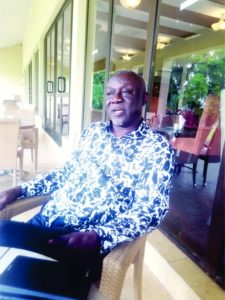
We sat with Attah in the office one day and I told him that nature has provided the state a natural drain only that people have built on them and that it will cost the state less than the N57billion to pay compensation to get the people relocated. I said if the structures were demolished water will flow naturally. He bought the idea. We started work and he engaged a firm to carry out aerial survey of the whole city with the topography but before the conclusion of the assignment the administration expired and someone else took over the government. Incidentally, we are not opportune to advise the then new government.
Look at the place they are building Tropicana and remember that Obong Victor Attah wrote an open letter condemning the site of the project. I went with Attah during his time and advised that that place should be left fallow. There are areas like that in some cities of the world known as low line. You allow water to go there and stay and evaporate. Attah gave an order that nothing should be built there until there is a reliable discharge. But when the Akpabio’s government started the Tropicana project there Attah was alarmed. So solutions to the natural problems depend on the understanding of the chief executive at the time. Uyo has no business having flood problem like we are having now if somebody has followed the laid out plans we designed.
Recently there was public outcry in the state that roads done in the rainy season six months ago are having problems. Is it advisable to build roads during rainy seasons?
Yes. It is very possible to do good roads under rainy seasons. I actually supervised one road in Rivers State which was just completed one month ago. It was started in the rainy season and finished in the rainy season; and I bet you, the road will last years and years to come. It depends on your understanding of engineering of road construction. It may be expensive and difficult but if you have proper equipment and good system you can achieve it. But if you don’t know how to do it, better stay off. However the rainforest of Akwa Ibom, Rivers and Bayelsa states have very few months without rains, so governors should find a way of doing good jobs on road construction even during rainy season.
Are you saying the terrain here is different from what we have in other regions of the country?
Of course, in some parts of the country, they stop seeing rains in August. Here we still have rains in December and so our soil is saturated with water. If you want to build roads here you must consider the type of equipment you use and the system of construction to accomplish a structural sound road.
How do you assess the developmental strides in the state?
I think the government of the state will need to get more advice to ensure that whatever they are doing is in the general interest of the people of Akwa Ibom State. For instance, if they are focusing on road construction, there are certain roads that need to be given priority. We have the ring roads that are ongoing simultaneously but if I am opportune to advise government, I will tell them to take one at a time; complete one before moving to the other. Not to start a, b, c, d and something happens and the entire projects get stuck. On the industrialization we will feel the impact more when we see the products in the open market. I also know that there are some industries that need some time before actual production and the products are found in the market.
Are you saying that you haven’t seen the syringe or flour from the kings Flour Mill here in the market?
I was surprised when I get to a pharmacy outside the state and the owner said “Oga, we get our entire syringe product from Akwa Ibom State” and those are the kind of things we want to see. We also want the industries to employ lots of able bodied youths. We want industries that engage people productively. That is what we want more now because we want an impact on human capacity development of the state.
As an Engineer and former works commissioner, how do you feel about the deplorable state of Calabar-Itu Highway?
I have always been screaming that the road will take about N40million combined from the government of Cross River and Akwa Ibom states to fix the bad spots with good materials from a quarry. I don’t know why that has not happened. Sometimes we can’t wait for the Federal Government for what they will delay to do for us. After all it is our people that still ply that road daily. The government of both states should carry out serious palliative measures to restore the road for public use.
What is your impression of the anti-corruption war of the federal government?
The truth is that government alone cannot fight corruption in the country. We need to work on the mindset of individuals, and citizens to change for the sake of our collective good than catching and jailing people. If a Nigerian stole 10billion dollars and got jailed for 10 years he can take 2 billion dollars and service the prison apparatus and live like a king in the jail and still come back a free man to enjoy the remaining loot. So it is more of letting people know the effects of corruption on the system, including ourselves. Who wouldn’t want to stay in Nigeria and enjoy his life but today because the education system here is corrupt people send their children abroad. Some have to fly to India or Europe for medical checks or treatment because corruption will not allow our hospitals function optimally. We have to sit down and start from the families to eschew corruption. It has to be from inside out not from the top. How can you explain situations father go to school to bribe teachers for their kids to pass while they are not studying. In places like the United States you find chief executive billionaires whose kids start from the scratch in their various companies and worked themselves to the top. But here once they are out of school, they become the boss. Corruption matter is very delicate. It is better for people to work from inside out.
2023 is around the corner. Are you interested in contesting any public office?
To be honest, I teach the Bible and I believe what I teach. The Bible says the Lord can take one from the gutter and make him a king, He can also take one from being a king to a gutter. I will flow with God’s decision on the issue of my future in politics. Those who are close to me know that I have always been running away from active politics.
Come 2023, what kind of governor do you think Akwa Ibom deserves?
We need a governor that loves the State, one that listens to the people, a governor that will know that he was elected to serve not to be served, a governor that will be able to pull together or harness the abundant intellectual resources we have in the state to advance the course of the state. Akwa Ibom is very small in size. If we have good roads, one can come from Nkari to Uyo or Ebughu to Uyo in 30 minutes even from Ikono to Uyo in 30 minutes. We can only achieve these, if we have integrated development plan in the state. We should pray for a governor who will put up a realistic development plan to last his first four – year term. He should also be able to plan and know where the State should be in 20 years, then do his best and exit for the next person.
There are plans by the National Assembly to amend the constitution for a singular term of six years for governors and the president.
Nothing will be achieved if you don’t have an integrated development plan in at least 20 years running. Go round the country and see several laudable abandoned projects because people don’t believe in continuity from what their predecessor did in office.

Talking about abandoned projects, the president has directed the forensic audit of NDDC over such issues. What is your take?
What is the forensic audit aimed at? Is it legitimizing the corruption or knowing who owns companies that are owned. If it is to find out what projects are viable and to complete them, well. If it is to find out who was owned money genuinely but was not paid because they belong to opposition party, good. If it is to change the concept of the NDDC from contract giving and awarding to development, fine. When we talk about the forensic audit let us openly define what they want to accomplish with it.
What is your take on the full autonomy given to local government councils in the country?
There are three tiers of government. If the federal and states are functioning on their own, the local government can as well do. Now the local government chairmen will know that people elected them and serve the people diligently. But in a situation names are announced from the top such officers pay allegiance to those that appointed them into the office. So I believe that the move to give full autonomy to the local governments was a step in the right direction.

